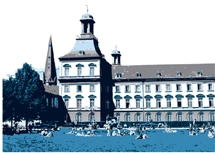Important Dates
Submission: 1 April 05
Notification: 22 April 05
Workshop: 7 August 05
|
Motivation, themes and goal
Motivation: Many real-life applications may involve huge datasets in which exhaustive sample-labeling requires expensive human resources and is often unrealistic. For example, in Bioinformatics or many Information Retrieval tasks, labeling data is a time consuming and a difficult task. For other problems such as remote sensing or medical imaging, labeling data may require very expensive tests so that only a small set of labeled data may be available. In some other domains, like targeted marketing, only a few positive samples are available while unlabeled examples are plentiful. In all these cases, we need to find ways of relieving the users of the annotation burden.
Themes: We will discuss recent developments, explore new issues and share ideas for future directions. We welcome papers that address any of the above questions or that focus on any of the following topics:
- Learning applications, in Bioinformatics or Information Access areas, using both labeled and unlabeled data with techniques including:
- Multi-modal semi-supervised methods: co-training or co-boosting,
- EM like semi-supervised techniques,
- Discriminative approaches,
- Markov random fields,
- Maximum Entropy with unlabeled data,
- Diagnostic applications or theoretical issues to characterize the role and the importance of unlabeled samples for learning,
- Techniques measuring the amount of information contained in error-prone samples relative to perfectly labeled observations,
- Kernels for semi-supervised learning, i.e. how to create good kernels using both labeled and unlabeled data,
- Tasks where unlabeled data may degrade the performance,
- Query-based and active learning,
- Learning with positive only labeled data,
- Transductive inference,
- Constrained clustering.
Goal: The aim of the workshop is twofold. On one hand, the focus will be to explore theoretical foundations for the above methods. On the other hand, the workshop intends at identifying key challenges and applications that can benefit from advances in this area.
Submission format
Please send to amini@poleia.lip6.fr in PDF or postscript in the ICML format, a full paper 6-10 pages or an extended abstract of less than 2000 words for one of the 3 tracks:
- Oral presentation,
- Research in progress,
- Posters or demos.
Organizers
Massih-Reza Amini, University Pierre et Marie Curie, France
Olivier Chapelle, Max Planck Institute for Biological Cybernetics, Germany
Rayid Ghani, Accenture Technology Labs, USA
Organising/Review Committee
Massih-Reza Amini, University Pierre et Marie Curie, France
Olivier Chapelle, Max Planck Institute for Biological Cybernetics, Germany
Ian Davidson, University at Albany, State University of New-York, USA
François Denis, Fondamental Computer Science of Marseille, France
Patrick Gallinari, University of Pierre and Marie Curie, France
Eric Gaussier, Xerox Research, Centre Europe, France
Rayid Ghani, Accenture Technology Labs, USA
Cyril Goutte, Xerox Research, Centre Europe, France
Yves Grandvalet, University of Compiègne, France
Neil Lawrence, University of Sheffield, United Kingdom
Craig Saunders, University of Southampton, United Kingdom
Kiri Wagstaff, Jet Propulsion Laboratory, NASA, USA
Dengyong Zhou, Max Planck Institute for Biological Cybernetics, Germany
Xiaojin Zhu, Carnegie Mellon University, USA
Alexander Zien, Max Planck Institute for Biological Cybernetics, Germany
Keynote Speakers
Yoshua Bengio, University of Montréal, Canada
Zoubin Ghahramani, University College London, United Kingdom
Matthias Seeger, University of California Berkeley, USA
Important Dates
Paper submission deadline: April 1, 2005 - Extended deadline: April 8, 2005
Notification of acceptance: April 22, 2005
Final camera ready submissions: May 13, 2005
Workshop: August 7, 2005
|

